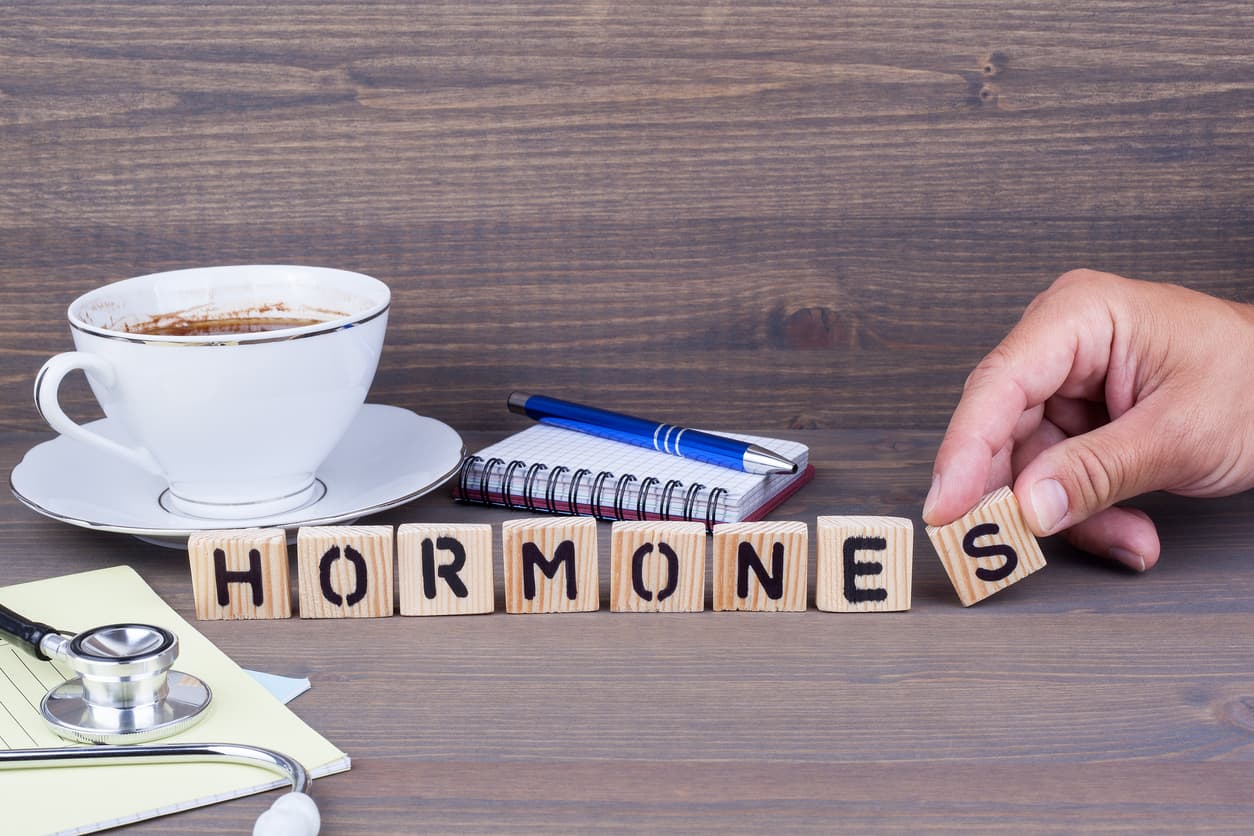Having a hormone imbalance can seriously impact your fertility. Learn the signs so you know when to reach out to a fertility specialist to get tested.
Hormones play a crucial role in fertility for both men and women. They dictate whether or not you are able to conceive a child, as well as if the female partner is able to maintain a pregnancy. When one of the hormone levels that relates to fertility is out of balance in either the male or the female partner, you may experience significant issues with getting pregnant.
The reality is that a hormone imbalance can not only reduce your chances of getting pregnant and having a live birth naturally, it can also reduce your chances of having a successful pregnancy with the aid of in-vitro fertilization (IVF). Understanding the state of your hormones can help you better understand your fertility — and in certain cases, help you diagnose other issues related to hormonal balance.
Hormones Levels That Significantly Affect Fertility
If you are concerned about your fertility, there are many hormones that may be playing a role. While they are certainly not the only potential culprit, the four hormones highlighted below are most intimately related to fertility. Understanding how their imbalance can generally affect fertility can help you better understand how to speak with a specialist about testing and treatment.
Estradiol and Estrogen. Estradiol is one of the most important forms of estrogen. The level of estradiol in a woman’s system can provide insight into her ovarian function and the quality of her eggs. If the levels of estradiol are too high, you might encounter issues with fertility as well as endometriosis and polycystic ovary syndrome (PCOS) — both of which are associated with infertility.
Elevated levels of estradiol are also correlated to lower IVF success because they are associated with decreased response to ovulation induction medication. Too little estradiol can lead to an absent or disrupted menstrual cycle, as well as general infertility. Overall, low levels of estrogen are associated with menopause — common symptoms include mood swings, absent or irregular periods, headaches, hot flashes, and more. Testing of estradiol levels is done on the second or third day of the menstrual cycle with a blood test.
Progesterone. Progesterone is central to the survival of a fertilized egg in the uterus, and normal levels must be present in order for a woman to get pregnant. The ovaries produce progesterone right after ovulation, which is why cervical mucus changes in consistency during that time. The presence of progesterone is extremely important in conceiving and staying pregnant.
The main concerns with progesterone relate to the levels being too low. Signs that you are low in progesterone include no change in your basal body temperature, having an irregular cycle, and changes in your LH levels. Progesterone levels will peak a week after ovulation, and are thus measured by comparing several blood tests taken at different points during your cycle — levels will peak a week after ovulation.
Follicle-stimulating hormone (FSH). FSH is critical to controlling egg production and the broader menstrual cycle. Both men and women can be seriously impacted by an imbalance in FSH levels. Women who have elevated levels of FSH in their blood on the second or third day of their menstrual cycle have a reduced chance of having a successful live birth as compared to women who have normal levels of the hormone, even if they undergo IVF or ovulation induction.
If levels of FSH are too low, a woman may experience incomplete development during puberty or ovarian failure. For men, both high and low levels of FSH can indicate a malfunction in the testicles. Low levels in particular can result in delayed puberty and limited sperm production. FSH levels are determined through blood tests. For women, these tests are performed on the second or third day of the menstrual cycle in order to evaluate the woman’s egg quality and ovarian function.
Luteinizing hormone (LH). LH is the hormone responsible for stimulating ovulation. It stimulates the ovaries to release an egg and to start producing progesterone, which is necessary to begin the conception process. Low levels of LH can cause fertility problems. Some symptoms of low levels of LH include irregular periods, unexplained weight loss, decreased appetite, and fatigue. Low levels of LH will cause infertility in both men and women, as the hormone is needed to keep ovaries and testes functioning normally.
LH levels can be determined through urine. LH can easily be measured through over-the-counter tests that help predict ovulation and check the LH levels in urine.
If you think you may have a hormonal imbalance or if you simply want to get your hormones tested to evaluate ovarian function and egg quality, schedule an appointment with AFCT today. Our experienced fertility specialists can help assess your hormone levels and discuss the treatment options that are right for you.


